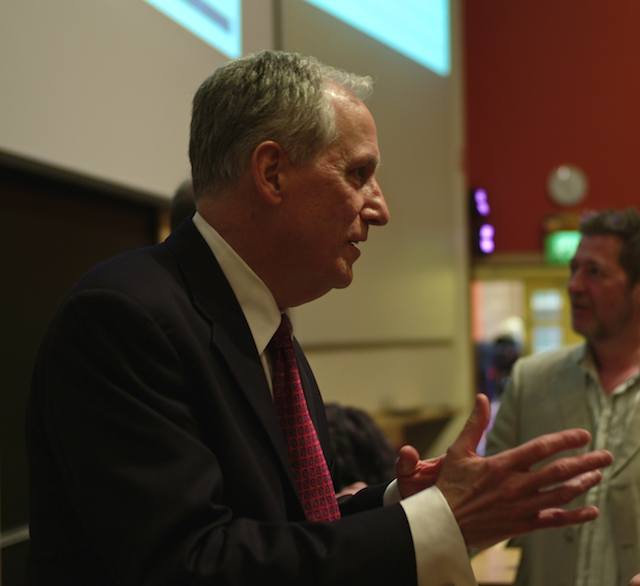This morning’s Observer column about ICANN’s decision to allow new generic Top-Level Domains (gTLDs).
Given the pressure on namespace within the existing gTLDs, it was inevitable that Icann would come under pressure to expand their number. The first foray came from those who wanted to establish “.xxx” as cyberspace’s red-light district. After numerous spluttering rows, this was finally approved a few months ago. You may be reassured to know that applicants for a .xxx domain must first complete an application process that will be overseen by the International Foundation for Online Responsibility (Iffor), a body set up to “promote the development of responsible business practices and conduct within the online adult-entertainment community”. So that’s all right, then.
But the .xxx stuff was really just the overture to the main business, which is accommodating the needs of corporations. Icann has now announced that it will allow them to apply for new gTLDs, such as “.fashion” or “.drinks”, for example. Or perhaps even “.coke” (though cocaine dealers might have something to say about that)…
In a thoughtful comment on the piece, Anthony Van Couvering argues that I’ve allowed my conspiracy theorising to get the better of my judgement.
The big-corporation conspiracy theory is one that I typically warm to, but as someone who’s been involved with ICANN for years, I can tell you that far from big corporations pushing this, they have been dead set against it, and over the last few years have put a lot of dollars and muscle trying to defeat the expansion of the top-level domain space. The reason is twofold: first, they feel that they will have to do defensive registrations in hundreds of new namespaces; second, they already own most of the beachfront property, and if you’re in that position, the last thing you want are more beaches.
He goes on to say that:
So although it does function as a barrier to entry, the $185,000 application fee is probably not what’s going to stop someone who’s seriously interested in applying — it’s just one of many expenses.
So who will apply? The brands will apply, mostly for .brand, either to promote it or as a “just in case” defensive measure. Cities will apply, and both New York and Paris among others have made known their intent. Ethnolinguistic communities will apply: .scot (Scotland), .cymru (Wales), .bzh (Brittany), and .eus (Basque) are just some of the announced candidates. Finally, there will be entrepreneurs who think that they have some special sauce that will make their top-level domain one that will be attractive to consumers.
[…]
The new gTLD program has a complicated history, and many interests have forcefully put forward their agenda. What we finally got was a compromise that everyone can grudgingly live with, but which in the end opens up the top-level domain space that for years had been blocked by corporate interests. It is a Very Good Thing.
I hope he’s right.

